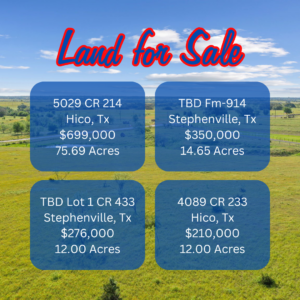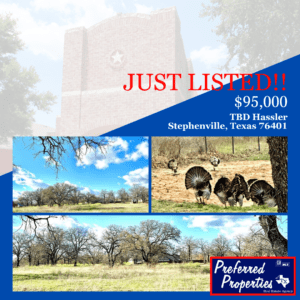Build your dream custom home on this beautiful 8.21-acre lot in the prestigious gated community of Sunrise Mountain Ranch. Located just minutes from downtown Stephenville and an hour and a half from the DFW Metroplex, Sunrise Mountain offers pure country tranquility with abundant wildlife and towering oak trees. This spectacular lot features access to a tank built into a natural creek that runs through massive hardwood trees, perfect for enjoying your morning coffee amid serene views. Access the property directly from the county road without entering the development. Note: Mobile homes, house trailers, and prefabricated homes are excluded.
Contact Preferred Properties of Texas today to schedule a showing.
For listings in Stephenville text HOMES to 877-965-7775
Just Listed! 112 & 113 County Road 175 Located in Stephenville, Tx
Durlyn Stokes- Broker

I am Durlyn Stokes, a real Estate Broker for Preferred Properties of Texas. I have an extensive background in Business and Financial Accounting. I graduated from the Eddie Bauer College of Business at the University of Houston. I have experience in helping clients find the home of their dreams. I specialize Residential, Farm and Ranch, commercial and can assist with 1031 exchanges. I will customize your criteria and exceed your expectations. . I am dedicated to my clients to help them reach their expectations in buying and selling their homes or Ranches. Connecting people with their dream properties is what I do-and I am passionate about what I do! Contact me today.






